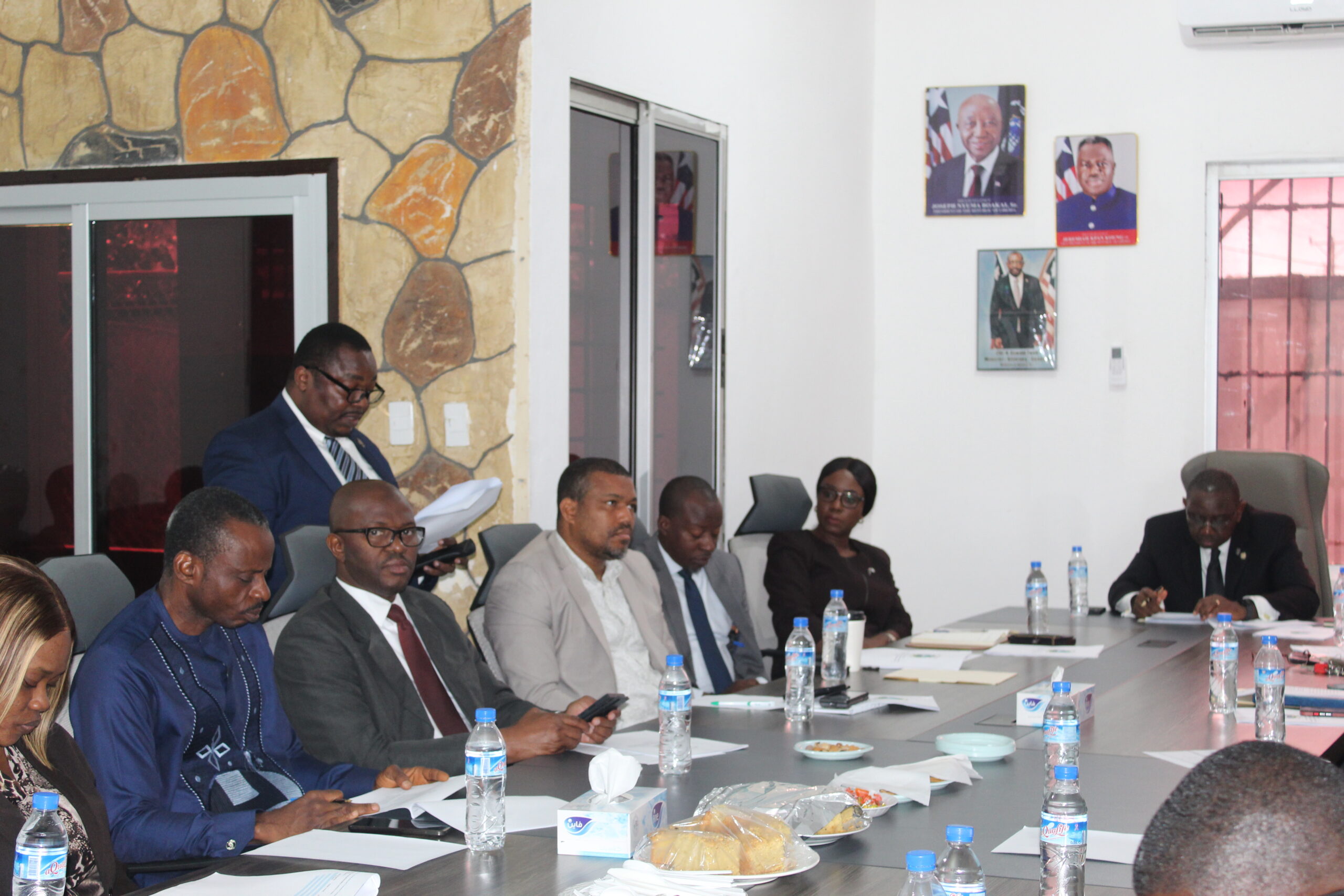The Inter-ministerial Committee (IMC) on Anti-money Laundering and Countering the Financing of Terrorism (AML/CFT) has adopted Liberia’s 5 years AML/CFT Action Plan, spanning 2024 – 2028. The national plan document outlines recommended actions to address deficiencies identified by assessors of the Inter-governmental Action Group against Money Laundering in West Africa (GIABA) in Liberia’s Second Round of Mutual Evaluation Report (MER-2) and strengthens Liberia’s readiness to combat Money Laundering, Terrorist Financing, and other Predicate Offenses. The IMC adoption of the country’s 5-year AML/CFT Action Plan seeks to strengthen Liberia’s AML/CFT legal and institutional frameworks and improve the effectiveness of investigation, prosecution and asset recovery related to money laundering, financing of terrorist and proliferation financing.
Speaking at the second IMC meeting in Monrovia, Liberia’s Justice Minister and Attorney General, Cllr. Oswald Tweh elaborated that Liberia underwent its second round of AML/CFT &P Mutual Evaluation from September 5-16, 2022, and that the assessment conducted by GIABA was focused on inter-related components of technical compliance to the FATF 40 Recommendations and Effectiveness of the eleven (11) Immediate Outcomes.
Cllr. Tweh also pointed out that the Mutual Evaluation Report, which was adopted at GIABA Plenary in May 2023, downgraded Liberia to an Enhanced Follow-up process, because of significant deficiencies in technical compliance and effectiveness in Liberia’s AML/CFT system. “The negative implications of this downgrade to Liberia’s economy and governance structure are overlapping and extensive. They range from global black/grey list, termination/ restriction of corresponding banking regulations – to loss of Foreign Direct Investments (FDIs) that could support our national development agenda,” the Justice Minister emphasized. He further stated that the AML/CFT national action plan is aimed at addressing all deficiencies identified in the Mutual Evaluation Report (MER-2) and to legally satisfy all international requirements and prevent global consequences.
Cllr. Tweh recalled Liberia’s commitment in November 2010, after the first round of mutual evaluation by GIABA, to prioritize preventive measures to address identified deficiencies in all regulated AML/CFT/P sectors for enhancing technical and effective regulatory AML/CFT compliance. He also recollected Liberia’s first round of mutual evaluation which was adopted by GIABA on May 5, 2011; leading to the establishment of the Financial Intelligence Unit (now Financial Intelligence Agency), enactment of the AML/CFT Act of 2012, creation and activation of inter-agency collaboration, and legislation of other technical regulatory compliance frameworks by the Liberian government. These actions, he noted, displayed Liberia’s adherence to global calls to combat money laundering and other financial crimes.
Also speaking at the IMC meeting, the FIA Officer-In-Charge, Mohammed A. Nasser, explained that Liberia presently needs all competent authorities’ involvement in enforcing the new AML/CFT/P Action Plan to address the deficiencies, as identified by GIABA, in the country’s second round of mutual evaluation report, which has downgraded Liberia to an enhanced follow-up process. Mr. Nasser mentioned that the mutual evaluation conducted by GIABA in 2022 – and adopted in May 2023 – indicated gains Liberia has achieved; emphasizing that all competent authorities must exert more effort to take measures, as outlined in Liberia’s new AML/CFT Action plan for 2024-2028, enabling a robust AML/CFT compliance climate.
The FIA OIC further cited Recommendations 7 and 15(targeted financial sanctions related to proliferation and new technologies) – as being highlighted in the country’s second round of mutual evaluation report – caution Liberia to take measures against proliferation financing and mandates competent authorities in Liberia to work collaboratively to take realistic AML/CFT steps to prevent and mitigate financial crimes.
Nasser intoned that Recommendation (R8) has also labelled Non-for-Profit Organizations (NPOs) as high-risk sector and potential conduits for Terrorist Financing (TF). He added that FIA, along with other competent authorities, was implementing measures to mitigate these risks.
“Liberia needs to look at other areas, including those captured under Recommendation (R15), which considers new technologies-visual asset and currency, and R-10, which addresses the issue of customer due diligence (CDD).
“Also, we need to reexamine our compliance to Recommendations 24 and 25, by improving AML/CFT compliance regarding transparency and beneficial ownership of legal persons, transparency and beneficial ownership of legal arrangements,” Nasser noted.
Meanwhile, several high-profile competent authorities from law enforcement, prosecutorial and regulatory authorities attended and participated in the national 2nd IMC meeting. The IMC member entities in attendance at the second meeting included, the Ministry of Justice (Chair), Ministry of Finance and Development Planning (Co-Chair), Central Bank of Liberia, Liberia Anti-Corruption Commission (LACC), Liberia National Drug Enforcement Agency (LDEA), Liberia National Police (LNP), Liberia Revenue Authority (LRA), Ministry of Labor (MOL), and the Financial Intelligence Agency of Liberia (FIA), which serves as secretary to the committee.

